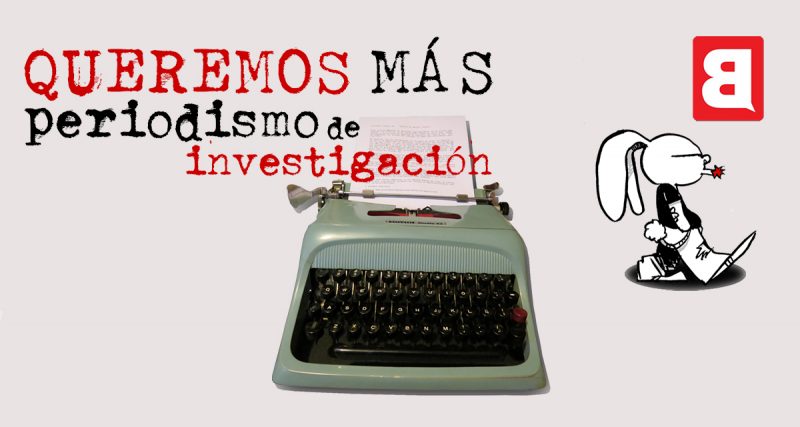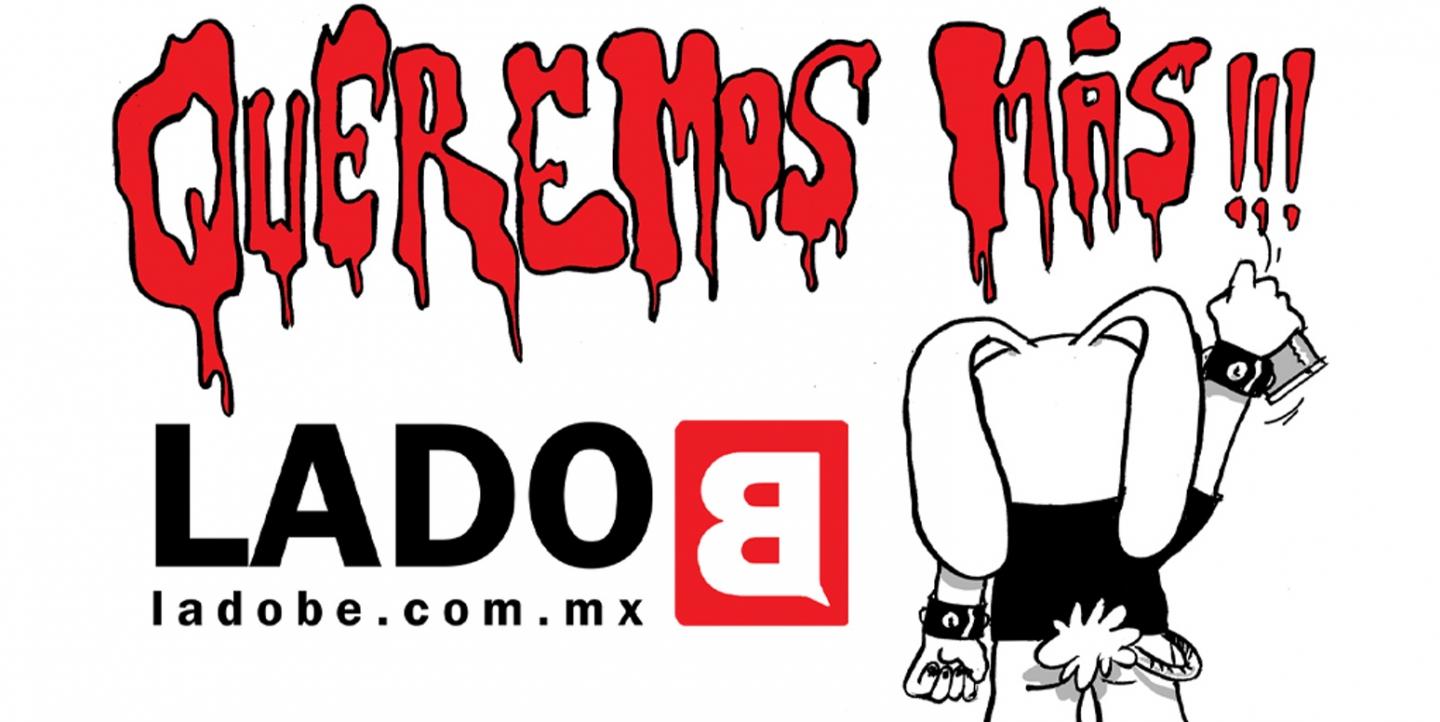This is the second article in a multi-part series by SembraMedia on how independent news sites can achieve financial stability. See part one here.
Lado B is a local media organization that focuses primarily on reporting and investigating political, economic and social issues of Puebla state in Mexico. It’s existed since 2011 and is directed by Ernesto Aroche and Mely Arellano, who oversee a core team of six editors and reporters, all women.
According to Aroche, the idea of running a crowdfunding campaign was something they’d been considering for some time, but had never sat down to fully think over.
“Since 2014, it had been clear to us that we needed to diversify our sources of income,” he explained. “We thought about carrying out workshops, selling content, commercial advertising and, of course, some form of collective fundraising.”
In 2015, they carried out a very specific mini-crowdfunding experiment that served as a learning experience. “We asked for MXN10 million (approximately US$460) in order to obtain a politician’s case file via a freedom of information request,” Aroche said. “The campaign only lasted a week but went very well. We got the resources, the case file, and we told a good story [about the politician’s violation of electoral laws].”
In mid-2016, the Lado B team decided to explore crowdfunding as their main way to diversify their income. Two reasons were key in this decision.
“First of all, we had a friend, Héctor Ranauro, who started to give us many ideas on how we could get resources, and gave us the idea of a campaign,” Aroche said. “Secondly, Fondeadora [a digital platform for crowdfunding] contacted us directly. They told us that they had completed a project evaluation in Puebla and that they saw many possibilities for us. If we decided to launch a campaign with them, they would support us in platform management and provide us with timely advice. Given this scenario, we decided to launch [the campaign].”
.jpg)
Lado B settled upon a simple goal for the campaign, which they called “We Want More: MXN80,000” (approximately US$3,650).
“We wanted a goal that we all saw as achievable," the director said. "MXN50,000 seemed too small to us. But going over MXN100,000 made us a little nervous."
No goal was set for the number of donors. By the end of the campaign, which lasted 30 days, they’d raised MXN110,000 (US$5,000) from 195 donors.
 “The amount collected makes up 17 percent of our 2017 budget,” Aroche said. Out of the total money raised, 10 percent will go toward buying equipment, 60 percent will be aimed at improving the conditions of our reporters, and 30 percent will be dedicated to coverage and research.”
“The amount collected makes up 17 percent of our 2017 budget,” Aroche said. Out of the total money raised, 10 percent will go toward buying equipment, 60 percent will be aimed at improving the conditions of our reporters, and 30 percent will be dedicated to coverage and research.”
The campaign had online and offline components that managed to work well in both timing and form. Lado B made a video about the organization and a series of memes that were widely shared on social media. It was a grassroots, self-developed campaign, carried out by the Lado B team — the main coordinator was editor-in-chief Arellano, who didn’t ally with any outside creative agencies.
In addition to the online campaign, Lado B organized a fundraising dinner, attended by 60 people paying MXN1,000 (US$48) per ticket.
“We made a list of 130 people that we thought would have both the interest and financial resources to attend,” Aroche said. “In the end, the dinner space was too small for for us. The attendance limit was imposed on us by the space we had to host the dinner. As an incentive, we invited Daniel Lizárraga, a journalist friend of Lado B, so the attendees could talk with him about the investigation of [Mexican President Enrique] Peña Nieto’s White House [scandal].”
But in journalism, not everything is research, verification and reporting.
“We also had a party,” Aroche said. “We were able to get some boxes of beer donated and we were loaned a space. It was a success, based on our definition/proportions. More than 100 people attended the party. Attendance cost MXN30 (less than US$2). The alcohol was sold separately, and that’s what Lado B took away. In the end it was MXN6 million (US$290).”
The Lado B team also went to universities and study centers to talk with students and teachers. They even contemplated doing a street collection, “but we didn’t because we thought it was no longer necessary,” Aroche said. Despite Fondeadora’s advice, they had some technical problems with the platform, so they opened a couple of bank accounts in order to receive direct donations.
.jpg)
What lessons did Lado B learn?
Firstly, “we felt like we lacked planning,” Aroche said. “For example, we never thought about how we were going to divide the campaign week by week, in terms of what products or messages to use. In the beginning we only had a video, which after you watch once, it loses its meaning/impact. Fortunately, we made an alliance with the cartoonist Ángel Chanes, who helped us with memes, posters and comics during the campaign.” In the end, three cartoonists from Puebla donated their work to the campaign, which will be given as rewards to the donors who contributed more than MXN3,000 (US$140).
“Secondly, we saw that people who donated are people who know us directly,” Aroche adds. “Only 10 percent of donors are not in our close circle. That means that next year we have to plan a much more ambitious, open and strategic campaign to reach more people.”
The average donation was MXN500 (US$23) and 20 percent of donors did so without asking for any kind of reward. Cencos, a research center and promoter of human rights, contributed MXN10,000 (US$460) as an institutional sponsor.
According to Aroche, next year Lado B will seek to raise at least 50 or 60 percent of what they received in 2016.
"Our greatest ambition is to gradually reduce advertising revenues coming in from a public university, because ultimately it’s official advertising," explains the director. They are on the right track.
This article was translated and republished with permission (see the original in Spanish here). It is part of a series on creating financially viable journalism by SembraMedia, an organization dedicated to improving the quality of news content available in Spanish.
SembraMedia’s founder and executive director is ICFJ Knight Fellow Janine Warner, who is an expert at helping digital media entrepreneurs implement sustainable business practices and generate new sources of revenue online. Learn more about her work as an ICFJ Knight Fellow here.

